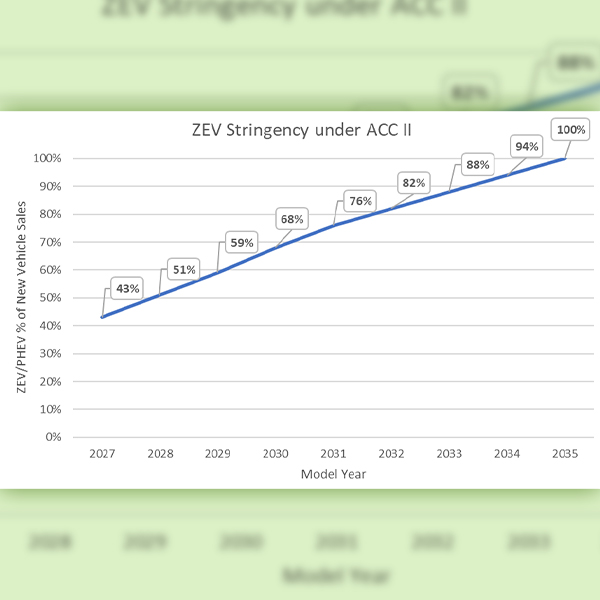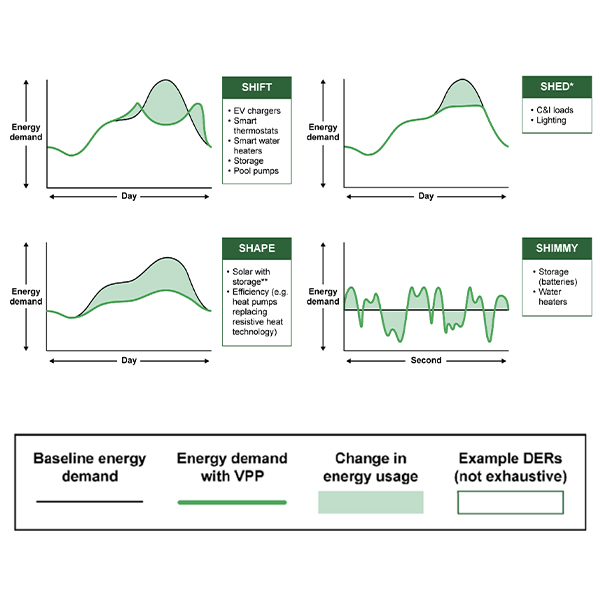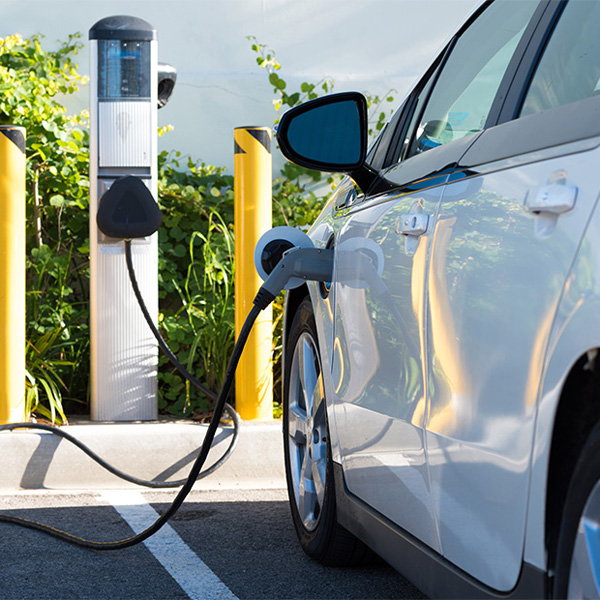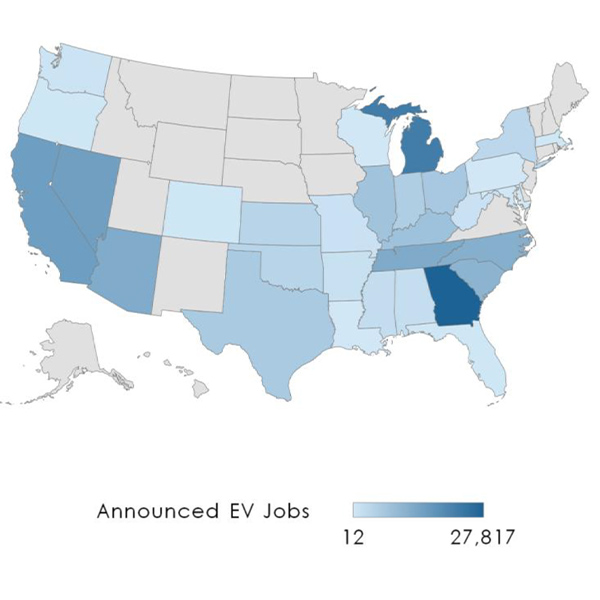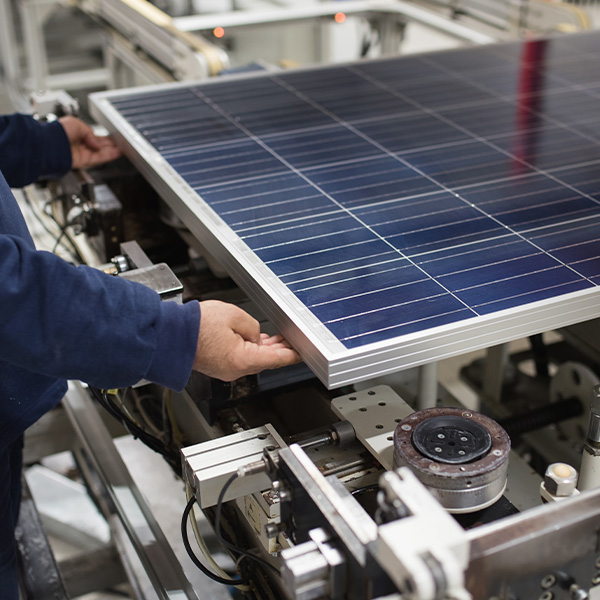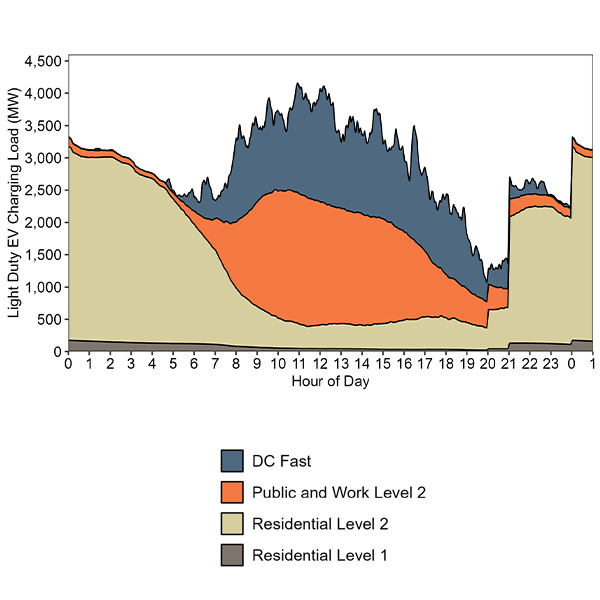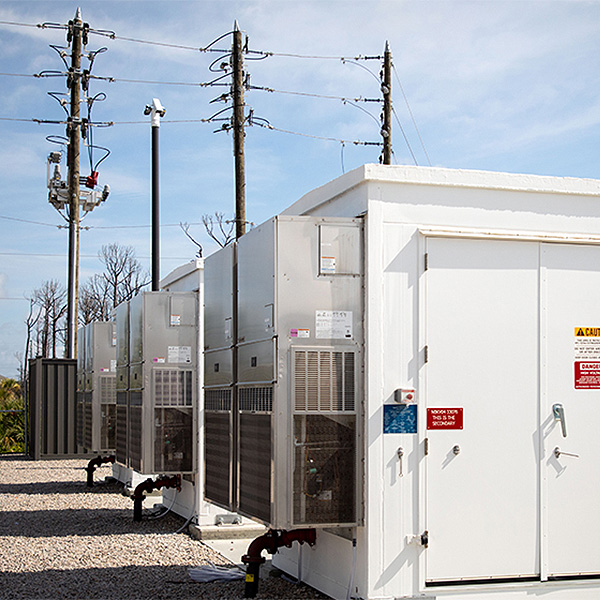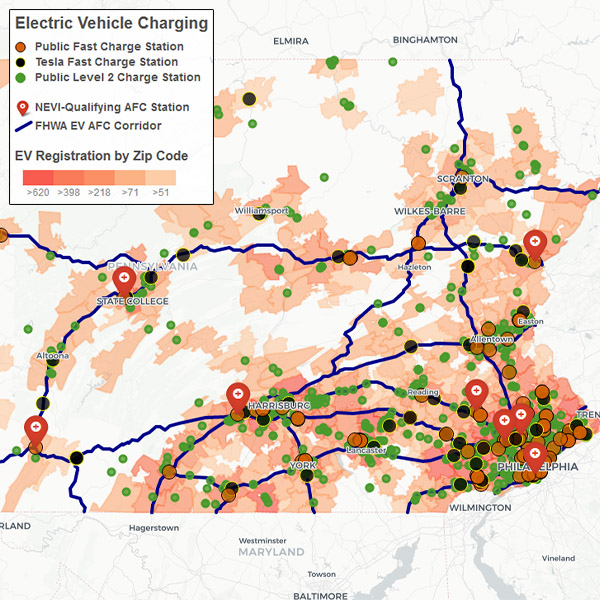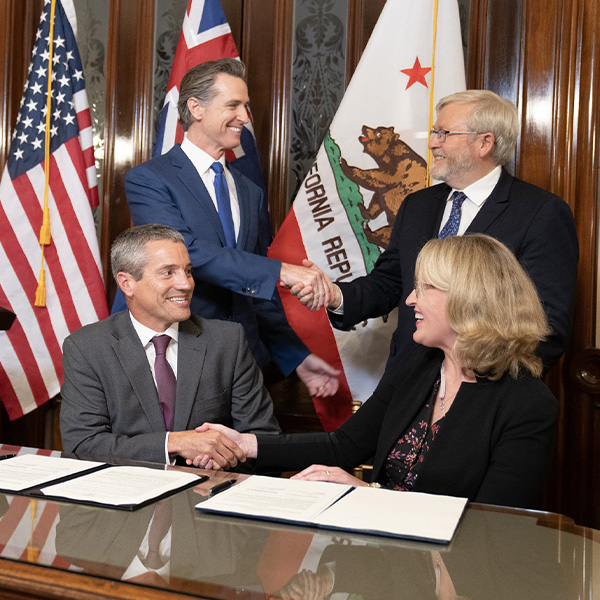Light-duty vehicles
Maryland is the eighth state to adopt the Advanced Clean Cars II rule, which will require all new light-duty vehicles sold in the state to be zero emission by 2035.
The Department of Energy released a report outlining how to bring more virtual power plants online, which can be a money-saving way of helping to balance the grid and maintain resource adequacy.
New Jersey’s plan to adopt California’s Advanced Clean Cars II (ACCII) rules should be abandoned, a coalition of 100 business groups said in a letter to legislative leaders.
The Southeast Alliance for Clean Energy's report found that despite being responsible for 40% of all new investments in EV manufacturing, sales in the Southeast range from only 2.5% to 7% of vehicle sales, below the national average.
Starting in 2024, consumers buying an electric vehicle that qualifies for a $7,500 tax credit under the Inflation Reduction Act.
California will need to double its public EV charging infrastructure between 2030 and 2035, according to a new report by the state's Energy Commission.
DOE announced $15.5 billion from several sources that will help American manufacturers retool for EVs, preserving well-paying jobs in the process.
Duke Energy Progress and North Carolina Eastern Municipal Power Agency filed a settlement with FERC regarding the latter using batteries to shave its peak demand.
Pennsylvania announced an investment of federal funds totaling $33.8 million to install 54 EV charging projects as the state seeks to put more EVs on state roads.
Faced with similar threats from climate change, California and Australia have agreed to battle the climate crisis together.
Want more? Advanced Search
